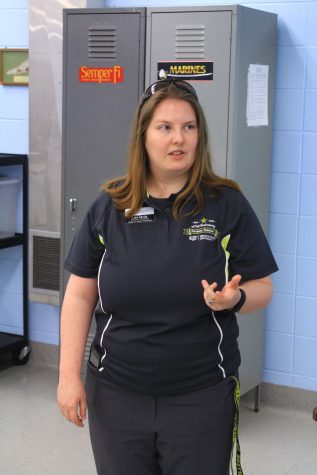Anonymity: brave or cowardly? Yik Yak sparks a conversation
In the wake of online news, entertainment and other content comes the emergence of the anonymous user.
Before this change in technology, being anonymous was nearly impossible unless it involved mysterious letters composed with letters cut from magazine pages and dropped off in a mailbox overnight.
But nowadays, it’s too easy to create a pseudonym and live a double life online. And social media sites have invested in the anonymous lifestyle. Tumblr allows users to communicate with one another anonymously. And now, Yik Yak, a new app that resembles an anonymous version of Twitter, has recently hit the Wichita State campus.
Users of Yik Yak can post anonymous statuses — “yaks” — and the app categorizes the updates by location, so WSU students can read what other people are talking about on campus. It also allows you to “peek” on other campuses to find out what’s going on there.
Some — but few — yaks have substantial meaning and purpose. For example, this one: “Fun drinking game: take a shot of water every few hours to stay healthy and hydrated.”
Or, this one: “At WSU, your tuition pays for watering sidewalks, insane air conditioning, continuous useless construction and a shuttle that’s never in your favor.”
Besides those, the majority of yakkers post inappropriate thoughts about the blonde in front of them in class.
The advantage of Yik Yak is that students can connect with one another all in one place, without having to add friends or followers.
Anonymous speech has one purpose: to protect the speaker from consequences of his/her speech.
But there should be a time and a place for anonymous speech. If you have the courage to say something, do you have the courage to attach your name to it?
Anonymous speech is meant to bring light to an important topic and make change. Yik Yak hardly does that.
Online users should have the courage to speak and deal with the consequences of what is said, unless it is endangering or puts an individual’s safety at risk.
Our generation needs a reminder of what is meant to be anonymous and what is not.
Posting false and meaningless comments has become too commonplace. Because there is a gray area surrounding anonymous posts, a new “norm” needs to be established.
At the very least, apps like Yik Yak spark conversation. Are anonymous comments considered ethical? Do we assume that they are wrong or right just because they are anonymous? Are anonymous users brave or cowardly?
Anymore, it seems they are cowardly.
—For the editorial board, Shelby Reynolds








